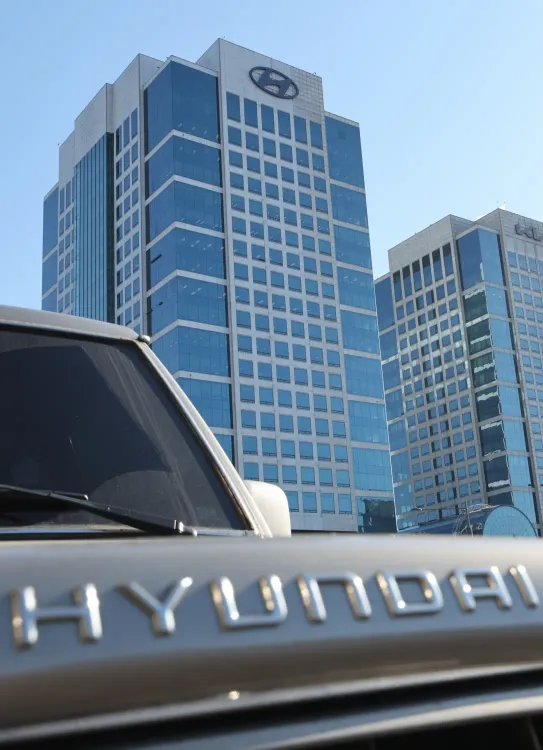What Caused Hyundai Motor's Exports from US Plant to Plunge?

Synopsis
Key Takeaways
- Hyundai's exports from the U.S. fell to 14 units in June.
- First drop below 100 units since April 2020.
- Production realignment strategies are being implemented.
- 25% tariff on imported vehicles is affecting exports.
- Plans to boost local production capacity.
Seoul, June 22 (NationPress) Hyundai Motor's vehicle exports from its U.S. facility took a significant hit last month, as revealed by industry statistics on Sunday. This downturn comes as the automaker implements production realignment strategies to address escalating tariff issues. Hyundai Motor Manufacturing Alabama (HMMA), the company's production arm in the U.S., exported merely 14 vehicles in June, marking a drastic drop from the 1,303 units shipped in the same month last year and 2,386 in May, as reported by the Yonhap news agency.
This decline represents the first occurrence of HMMA's monthly exports falling below 100 units since April 2020, during the initial phases of the COVID-19 pandemic.
Last year, HMMA managed to export a total of 22,600 vehicles.
According to industry experts, the steep decline is linked to Hyundai's production realignment strategy aimed at lessening the impact of Washington's tariff policies, which impose a 25% duty on all imported vehicles.
In 2022, Hyundai Motor exported 637,000 vehicles to the United States and is reportedly contemplating redirecting vehicles produced in the U.S. towards the domestic market instead of overseas exports.
To minimize tariff exposure, the automaker has previously announced intentions to enhance U.S. production capabilities by increasing output at its facilities in Alabama and Georgia to satisfy local demand. Concurrently, production of models destined for the U.S. at Kia Corp.'s Mexican plant will be reduced.
"To mitigate the effects of U.S. tariffs, we have enacted measures to transfer Tucson production from Mexico to HMMA and shifted HMMA's Canadian-bound production back to Mexico," a Hyundai representative stated during an earnings call in April.
As part of this strategy, Hyundai exported approximately 2,100 units of the Tucson crossover from Mexico in February; however, this number fell to 522 in March and has remained at zero since April.
Meanwhile, South Korea's automobile exports saw a slight decline in April compared to the previous year, primarily due to a significant reduction in shipments to the United States following the steep tariffs imposed on foreign-made vehicles, according to government data.
The total value of automobile exports reached US$6.53 billion last month, representing a 3.8% decrease from a year earlier, as per data from the Ministry of Trade, Industry and Energy.
Regionally, exports to North America fell 17.8% year-on-year to $3.36 billion, with shipments to the U.S. plummeting 19.6% to $2.89 billion.









